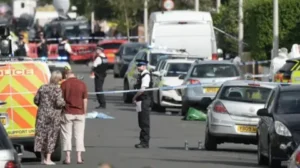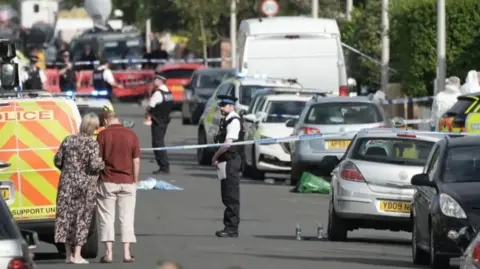The recent statements made by Home Secretary Yvette Cooper mark a significant shift in the approach to tackling violent crime in the UK. Following the tragic incident in Southport, where a perpetrator named Axel Rudakubana committed a horrific attack, leading to the death of three young girls and serious injuries to several others, Cooper announced plans to introduce new legislation aimed at enhancing the scope of law enforcement’s capabilities. This new legislation is set to address a critical gap in the current legal framework regarding individuals who are fixated on violence but do not adhere to a specific ideological motive.
Cooper has articulated that the criminal justice system must adapt to enable the police to take preventative measures against individuals displaying dangerous patterns of behavior, even if they are not motivated by ideological beliefs associated with terrorism. The importance of these measures has been underscored by the brutal events of last year, where Rudakubana carried out an attack on a dance class themed around pop superstar Taylor Swift, unequivocally highlighting the urgent need for a robust response mechanism.
Currently, individuals motivated by terrorism can face life imprisonment if evidence is found that they are preparing to carry out an attack, even if those plans are not fully formed. However, this existing framework fails to adequately cover those whose motivations stem from violent tendencies devoid of any ideological basis. Cooper emphasized in her discussions with BBC Radio 4’s “State of Terror” that the proposed changes would equip the police with the authority to preemptively apprehend individuals who exhibit concerning behaviors typical of violent attacks, akin to the measures in place for terror suspects.
The implications of this legislative change, which Cooper described as essential for both community safety and effective law enforcement, cannot be understated. According to her, the new measures would aim to categorize the planning of violent mass attacks with the same severity as acts of terrorism themselves, effectively closing a gap that has previously left law enforcement constrained in their ability to act against potential attackers.
In detailing the nature of the proposed crime legislation, Cooper referred to the changes as necessary to mitigate the risks posed by individuals like Rudakubana, who could not have been apprehended prior to his attack owing to his lack of an ideological motive. She pointed out that, had police identified Rudakubana researching an attack beforehand, their hands would have been tied due to existing legal definitions not encompassing non-ideological violence.
Moreover, Cooper’s proposals are not just aimed at the immediate threat but also conceptualized for broader implications regarding youth and radicalization. She pointed to the alarming trend of increasing numbers of teenagers engaging in self-radicalization through exposure to extremist online content, thus necessitating timely legislative interventions to confront these dangers without losing focus on the historical ideological threats that continue to manifest.
As Cooper concluded, there is a pressing need to ensure that law enforcement can proactively manage emerging threats while addressing the complexities of modern-day radicalization and violent tendencies emanating from digital environments. The commitment to tighten regulations regarding mass attack planning reflects a substantial commitment to public safety and readiness against evolving forms of violence.
The subject has not only been part of the government’s legislative discussions but also echoes a growing public concern regarding community safety in the wake of high-profile violent incidents. The impending changes signal a pivotal turn in the UK’s approach toward preemptive policing and crime prevention strategies, something that many in society are hopeful will yield safer communities in the future. Overall, the discourse around this important issue highlights a complex intersection of law, public safety, and the evolving challenges faced by modern societies against violent extremism and unmotivated acts of violence.











